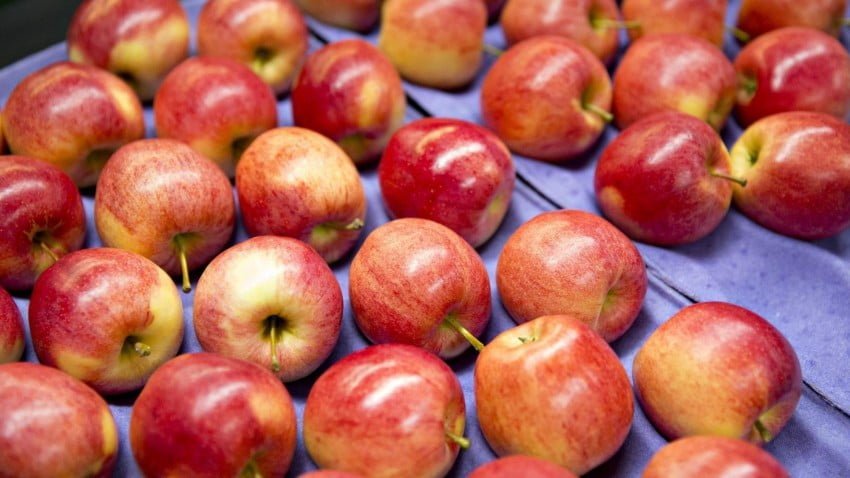According to estimates by Andriy Yarmak, an economist in the investment department of the Food and Agriculture Organization of the United Nations (FAO), the global market for fresh apple and apple concentrate can suffer huge losses due to coronavirus and low oil prices. This means that gardeners will have a very difficult season, even despite the market’s stagnating for many years.
“The volume of world apple trade has been fluctuating at a level close to $8 billion for many years, and in real terms, it has a downward trend. These tendencies occur due to the backdrop of growing apple production in almost all major producing countries and many developing countries and growing competition from other fruits and berries in the consumer market,” says Andriy Yarmak, an economist in the Investment Department of the Food and Agriculture Organization of the United Nations (FAO).
“According to our estimates, in 2020 the global apple trade may fall by $1.0-1.2 billion. These are direct losses for growers who were focused on the export of their fruits. They are caused by lower incomes of consumers around the world, especially in countries dependent on tourism and energy exports, the devaluation of national currencies, as well as the complexity of logistics. This will be an absolute record fall in apple trade in history,” predicts Andriy Yarmak.
According to the forecasts of the UN FAO expert, a decrease in global demand for apples can lead to a real collapse in world prices on this product, because it will be impossible to reduce production quickly. Moreover, according to EastFruit estimates, after declining production in Europe last year, gardeners expect a high yield of apples this season. The combination of these two factors is highly undesirable in any business.
“If there are no problems with the volume of apple harvest in the main producing countries, we can see a historically record low price level for fresh apples. At the same time, it will be practically impossible to sell an apple of lower quality categories, because the cost of logistics has also grown, which will make deliveries of low-quality apples economically unprofitable,” notes Andriy Yarmak. An expert also believes that such countries as Poland, Moldova, Serbia, China, Turkey, Iran, and Ukraine will suffer most from the possible fall in world apple trade.
“Poland continues to earn money by supplying apples to Russia through the mediation of Belarus and Kazakhstan. However, Russia will sharply reduce fresh apple imports in 2020, as oil and gas revenues plummet, and local apple production continues to grow. The second-largest apple market for Poland is Egypt, where the welfare of the population directly depends on tourism, as well as the consumption of apples, to a large extent, and oil exports. Both of these sources will run out sharply in 2020. The third-largest market for Polish apples is Romania. However, Romania can suffer economically more than most other EU countries from the coronavirus pandemic. In addition, India, as a major apple market for Poland, also sharply reduced apple imports. Therefore, more than half of Poland’s apple importers will have significant problems with apple imports. There is practically no alternative to them because, in Poland, only a few farmers produce premium-quality apples and sell them in a high price category,” the economist said.
Andriy Yarmak says that the situation is even worse for Moldova and Serbia, almost entirely dependent on Russia’s apple exports. Turkey and Iran also depend on exports of oil and gas and tourist countries, as well as to Russia, which will also significantly impact their apple producers.
As for Ukraine, its export is more diversified, but half of the deliveries are still carried to Russia through Moldova and Belarus. Ukraine is the EU’s second-largest market. In this case, Ukraine can still be a competitive supplier, but prices are likely to be shockingly low. On the contrary, supplies to the UAE can significantly decrease since this country lost almost the entire tourist flow, on which apple sales, as well as oil export revenues, depended. Similar problems are possible with deliveries to other countries in the Middle East.
“The countries of Southeast Asia will remain the most attractive direction for deliveries in terms of price, but there will be fierce competition between China in the low price segment, as well as the USA, New Zealand, South Africa, Italy, and France in the premium. Thus, it is better to prepare for this situation in advance,” says Andrii Yarmak.
Accordingly, countries focusing on the growth of medium and low-quality apple may face a situation where the supply of apples for processing increases sharply. However, will the global demand for fruit juices, in particular apple juice, increase? Andriy Yarmak believes it will not. Moreover, it may even decline.
“Recovered juices, in which apple concentrate is widely used, are not critical products for consumers. In addition, they have not been considered healthy foods since sugar is usually added to them. Therefore, a decline in consumer incomes around the world will also affect the consumption of juices and the demand for apple concentrate. Its prices have already been at a very low level for many years. Therefore, selling apples for processing in the new season may be so unprofitable for the gardeners that harvesting will not be worth the price,” the FAO expert explains. Andriy Yarmak also notes that the probable loss of the apple business will not be as significant as the loss of exporters of fresh berries, where a decrease in tourist flow will negatively affect not only consumption but also transportation of berries.
The use of the site materials is free if there is a direct and open for search engines hyperlink to a specific publication of the East-Fruit.com website.




